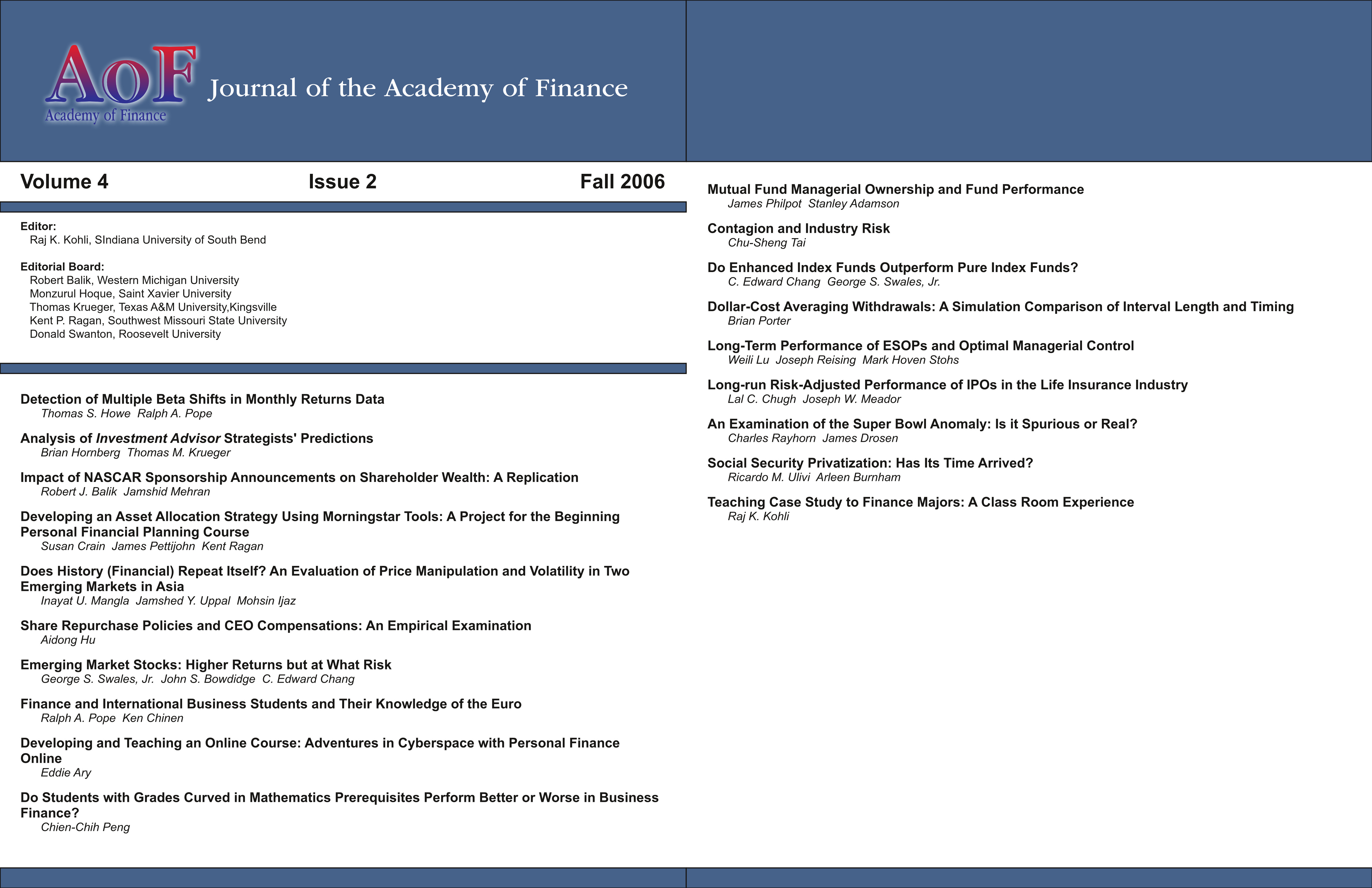Analysis of Investment Advisor Strategists' Predictions
DOI:
https://doi.org/10.58886/jfi.v4i2.2455Abstract
This abstract was created post-production by the JFI Editorial Board.
In this study, we examined the ability of the strategist chosen by Investment Advisor, the leading trade magazine dedicated to financial planning, and quoted
monthly in its "Asset Allocation" column. Data was obtained for the entire fifteen years that this information has been published. Two of five economic forecasts statistically showed a great deal of accuracy over the 15-year span. The forecasts for the bond market and the inflation rate statistically have no bias over the years. However, when both early data and more recent data are looked at individually, the accuracy of Investment Advisor strategists' inflation rate forecast seems to be time sensitive. Segmenting of the data does not affect the bond market hypothesis results. Less accuracy was observed for the prediction of the other three economic measures, the stock market, economic growth, and short-term rates. However, over shorter periods, some of the predictions appear to have less bias. For instance, when the stock market data is split, the hypothesis of prediction accuracy was rejected for the fist half of the sample period but accepted for the second half. By contrast, short-term interest rate forecasts were statistically accurate during the first sub-period, but not the second sup-period. Predications of changes in gross domestic product were not accurate whether one used the data from 1991-1997, from 1998-2005, or the entire period.





